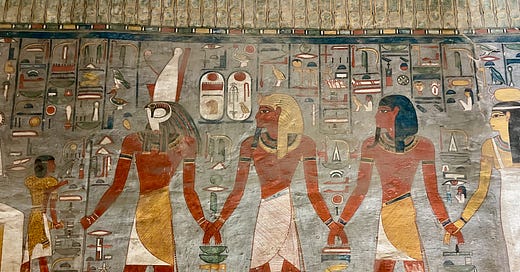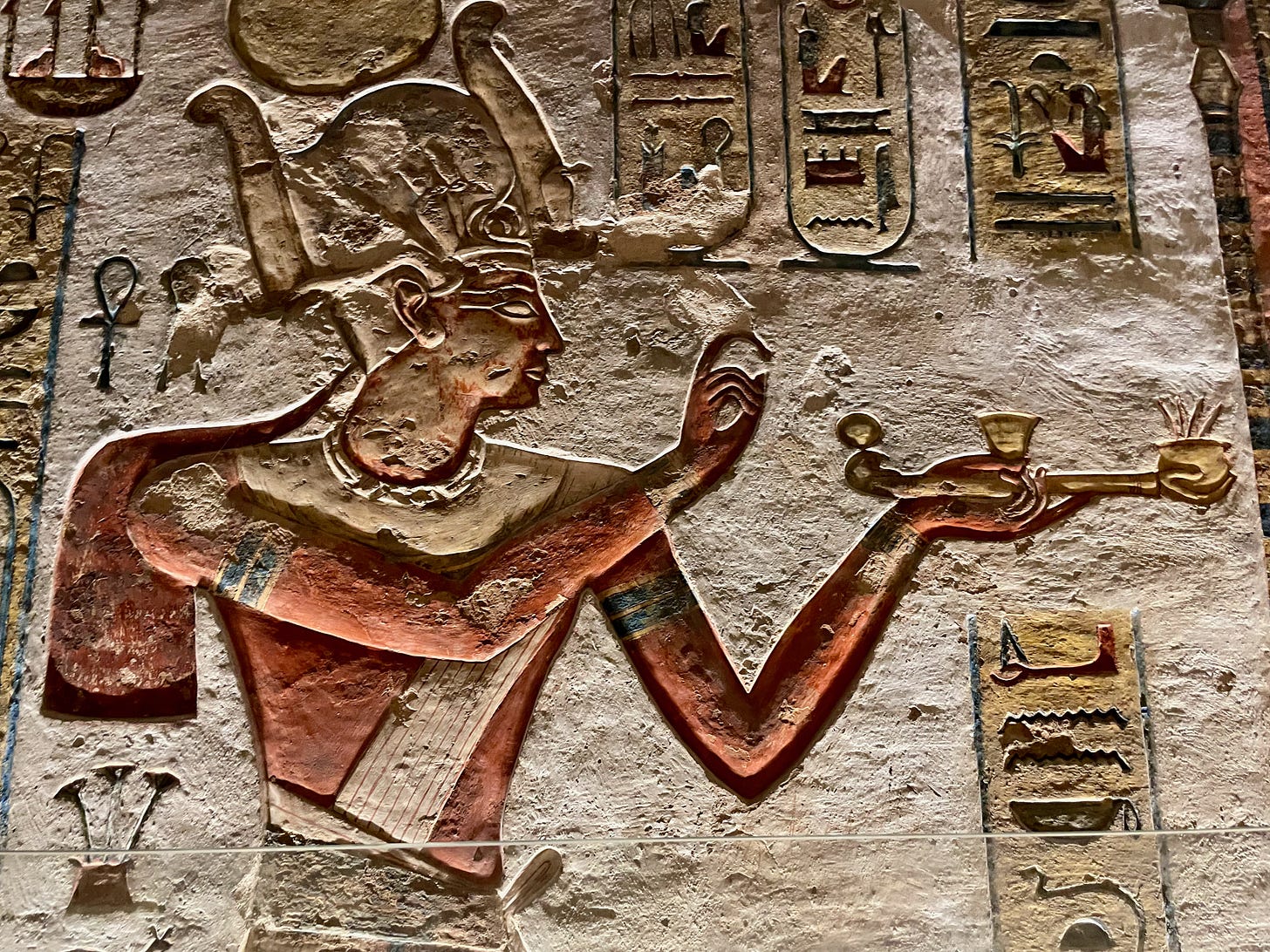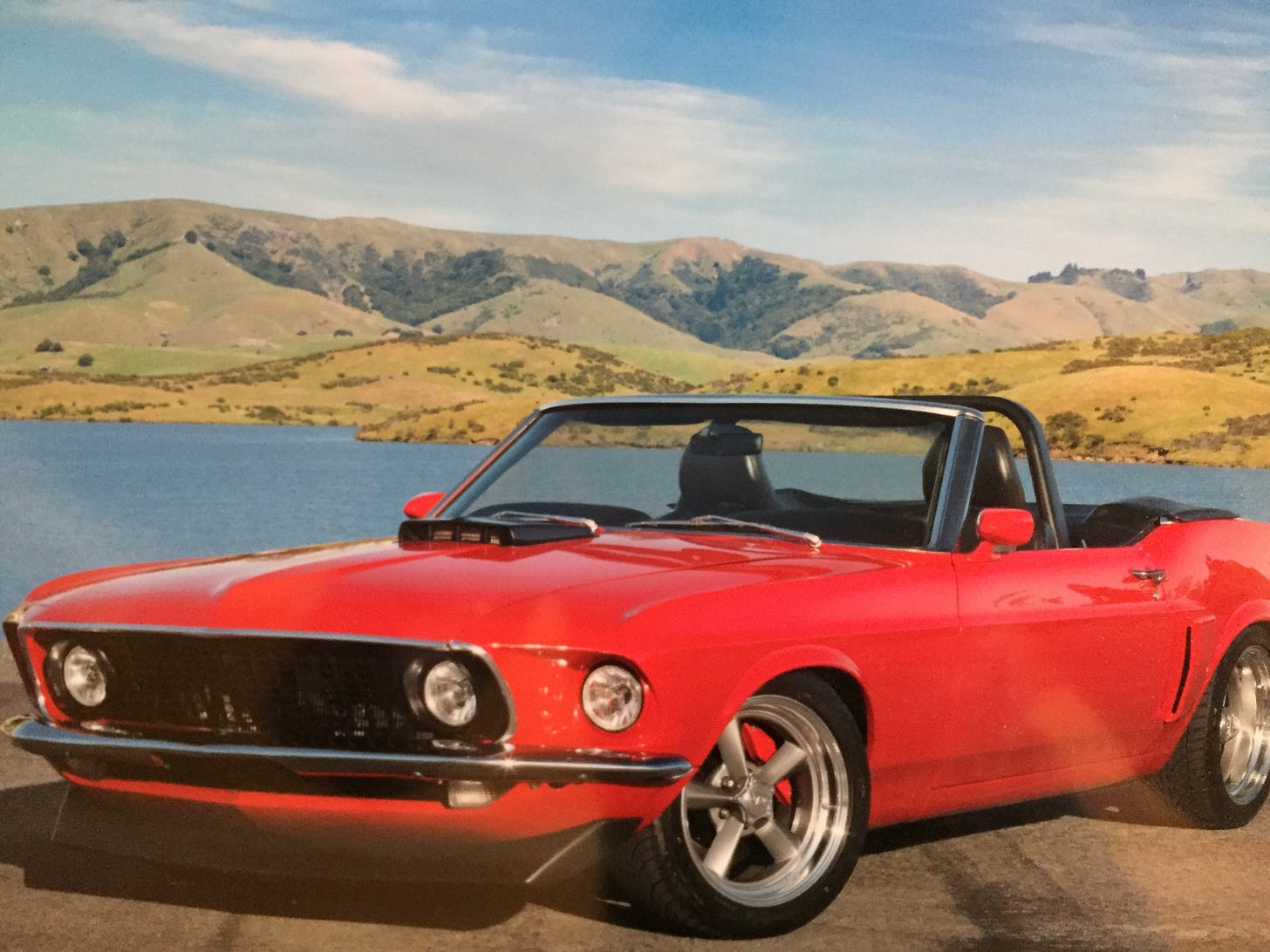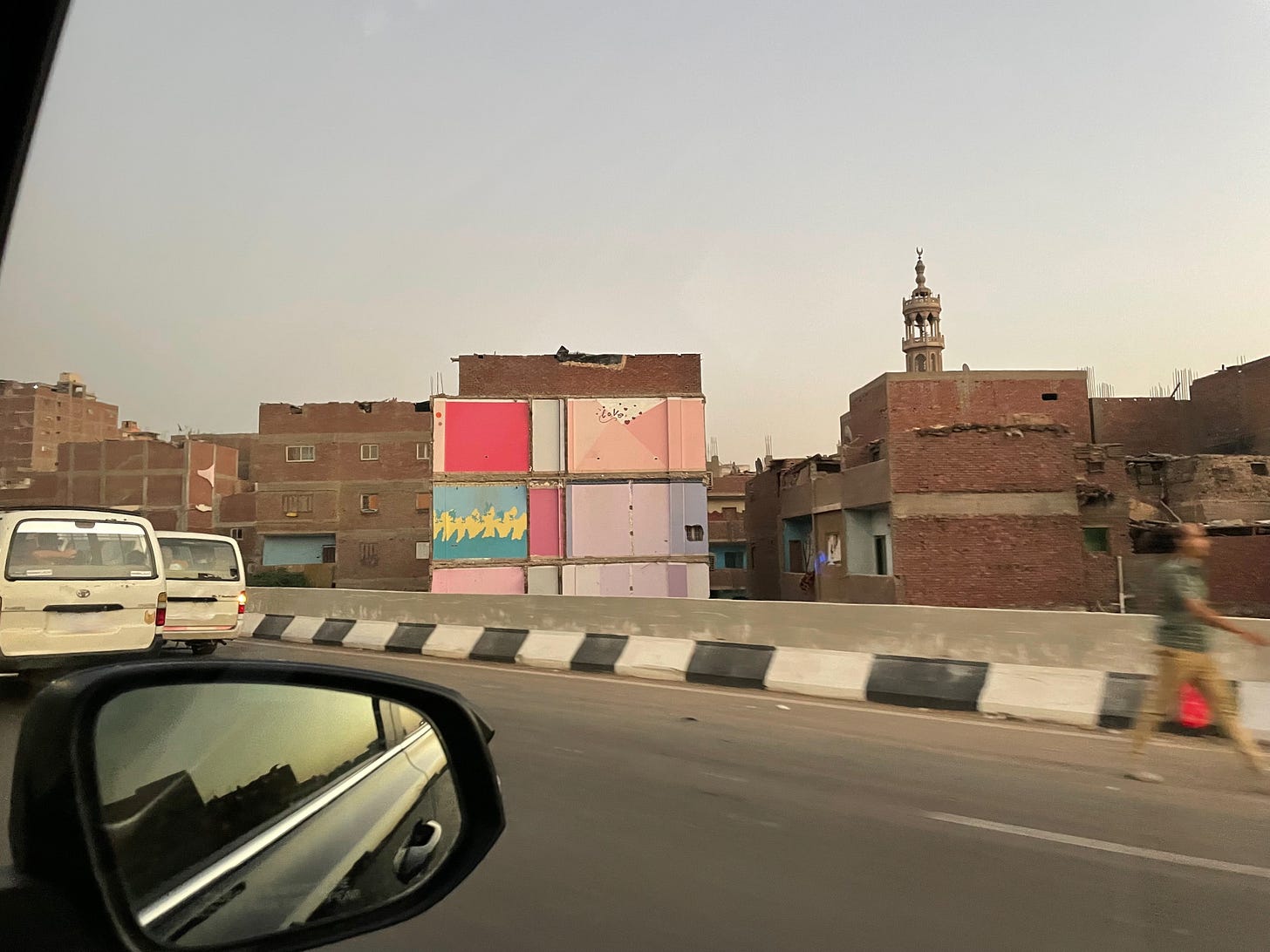Hi friends,
It’s been a weird week. I had to make a scary, exciting, life-altering decision that I was absolutely not prepared for, and I just have to hope and pray it was the right choice. Only time will tell. On top of that, I traveled all the way from Egypt to the U.S. for a dear friend’s wedding (Congratulations, Catherine and Jeff!!) only to end up too sick to go. The bride was incredibly gracious and said something beautiful: that the universe was conspiring to let me spend time with my mom on the six month anniversary of my dad’s passing, which happened to be the same day as the wedding.
That made me feel a little better, but the unexpected turn of events got me thinking about detours, both literal and metaphorical, and what happens when our trips don’t turn out as planned. We never know what’s going to happen when we travel. Flights could get cancelled, our luggage could get lost, or the weather could unexpectedly suck. All we can do is hope for the best. But sometimes when things go wrong, something important or interesting reveals itself. An example: Nick and I got to spend an extra day in Kyoto when our train was cancelled due to a monsoon, and we loved Kyoto so much that we would have happily spent even more time there than we did.
So, tell me: have you ever taken a detour that directed you to where you needed to be at that moment, or otherwise revealed something interesting? Let me know in the comments—I’d love to hear your stories.
A quick note about this week’s essay: this is the last of my Luxor-inspired series, and is a contribution to the Soaring Twenties Social Club Symposium, a monthly set-theme collaboration between STSC writers. The topic for this issue is work, which I’ve interpreted loosely.
And just because it’s been six months and I’m missing my dad a little extra right now, here’s one of my favorite photos of us…
-Sam
The day my dad brought the ‘69 Mustang home, I watched closely as he drove it up to the house and then asked him what the hell possessed him to buy it. It was a hideous rust bucket, little more than a dented body spray painted black. I should have trusted that he had a vision for it. Every weekend he’d disappear from the house for hours and come back inside smelling of metal shavings, his clothes stained with motor oil, and the Mustang would look a little prettier. He sanded every inch of that rusted body and painted it cherry red, he put in a fresh engine, he tinkered with each wire and injector until he had maximized the horsepower. Eventually everyone in the neighborhood knew the car on sight, and people would roll down their windows at stoplights just to tell my dad how beautiful it was. It was his magnum opus, a thing of beauty he built with his own two hands.
We took many rides together in the Mustang, but I remember one in particular—it was one of those crisp days with perfect visibility and crystalline air, and my dad never let up on the gas pedal. He radiated happiness, especially when we hit straight stretches of road and he could tap the gas just a little harder. The wind tangled my hair in painful knots and I didn’t care, because at those high speeds my body felt so light that I imagined we could lift off into the sky and keep going forever. I realized this would be what I’d want to do if we only had one day left on earth together, and little tears pooled in the rims of my sunglasses.
We now have no days left on earth together. Not long after I moved to Cairo, my dad moved to the land of the dead. Because I lack an ironclad faith like my mom’s—she is certain his soul was called home to God—and am constantly surrounded by ancient tombs and mortuary temples, I have become obsessed with the funerary rites of the pharaohs. I compare them to the rites my father received even while telling myself it's nonsense. Loss has turned me to superstition despite my better judgment.
The ancient Egyptians didn’t think of the afterlife as a metaphysical dimension. They believed the next world to be as corporeal as this one, hence why mummification was crucial. The soul had to re-enter the body of the deceased to move into the eternal Field of Reeds, where it would need to eat food and drink water and wear clothes provided in tomb offerings. To re-enter the body, the soul would first have to find its owner’s sarcophagus, marked with his name in a cartouche. Without a body the soul would cease to exist. But the ancients, fearing the ravages of grave robbers and harsh elements and human error, built insurance against that eventuality into their myths. If the body was damaged, the soul could instead inhabit a statue or a painting of its owner placed strategically in the tomb.
My dad was cremated. If the ancients are to be believed, his soul will have to look for some other form bearing his likeness before moving into the afterlife, but we have neither statues nor paintings of him. What we do have is the Mustang he built so lovingly. It is as fast and powerful and agile as he was. He even carved his initials into the hubcaps like a cartouche. I feel if there is even the smallest chance that his soul will find those initials and settle in the car, I must guard it jealously, just in case. I can hardly drive a low-riding convertible on the potholed streets of Cairo, but I certainly can’t sell it—the buyer would no doubt erase the initials in the hubcaps, an unacceptable risk. So the Mustang sits in the garage where my dad built it, entombed in the cold and the dark.
If he could read this, my dad would say it’s all a bunch of bollocks. He didn’t believe that souls could live in cars. He believed in scientific principles like the first law of thermodynamics, which states that energy can be neither created nor destroyed but is merely converted from one form to another. He believed that the human soul was a source of energy—a life force that spurred us to action, that produced measurable outputs like brainwaves—and therefore could not simply dissipate into ether.
He poured so much of himself into the Mustang, expended so much energy perfecting it, that whether I ascribe to the myths of the pharaohs or the law of conservation of energy, the conclusion is the same: whenever I hear the rev of the Mustang’s engine, he will be there. When I slam on the gas pedal, I’ll feel the familiar pull and the g-force throwing me back into the leather seats and the wind in my hair like I did when my dad drove it. His soul energy, which could never be destroyed, will be transformed into the kinetic.
elsewhere
In honor of Halloween: the 43 most haunted places in the world. I’ve been to several of these but have no paranormal encounters to report! [CN Traveler]
Did you know pumpkin spice existed for hundreds of years before the Starbucks craze? I tried pumpkin spice Milanos this week. They were gross, yet for some reason I kept eating them. [Food & Wine]
The wedding I missed this week was in Springfield, MO, but this article about a mother-daughter artist duo who live and work in Springfield makes me feel like I’ve been. Beautiful photos, and proof that artists don’t have to live in New York of LA—home can be a powerful source of inspiration. [New York Times]
This hotel in Croatia hopes to bring new life to a war-torn village. [BBC Travel]
An important reminder that spending too much time online distorts our perceptions of reality—or, in other words, we all need to go outside and “touch grass.” [Maybe Baby]
tour this apartment without leaving your car!
This type of building is one of the weirder fixtures of the Cairo skyline. Those paintings aren’t murals—they used to be the walls of apartments, which were sawed off to make room for a new highway while the other half of the building was left standing. See the “love” painted on the wall in the upper righthand corner? I think we may be looking at the ruins of a child’s bedroom, which feels absurd, voyeuristic, and a little sad all at once.
That’s all for this week—have a fantastic one, and see you next Tuesday!










Loved your post this week. We missed you terribly at the wedding, and my words were likely influenced by my favorite book The Alchemist, which seems a bit too coincidental based on your other posts lately!
Somehow, the universe is always conspiring to make sure that we are exactly where we are supposed to be.
I love seeing photos of you and your dad, the love pops out of the screen and straight into hearts!
Fantastic essay, Sam. The part where you imagine your dad’s soul inhabiting the Mustang is very similar (although far less morbidly so) to a short story I read recently, called “Men, Women, and Chainsaws” by Stephen Graham Jones. It’s a great horror story, and provides for some food for thought in the margins as well.
Once again, congrats on the essay. Would love to know more about your trip to Kyoto, as it’s been a dream of mine to visit Japan someday.